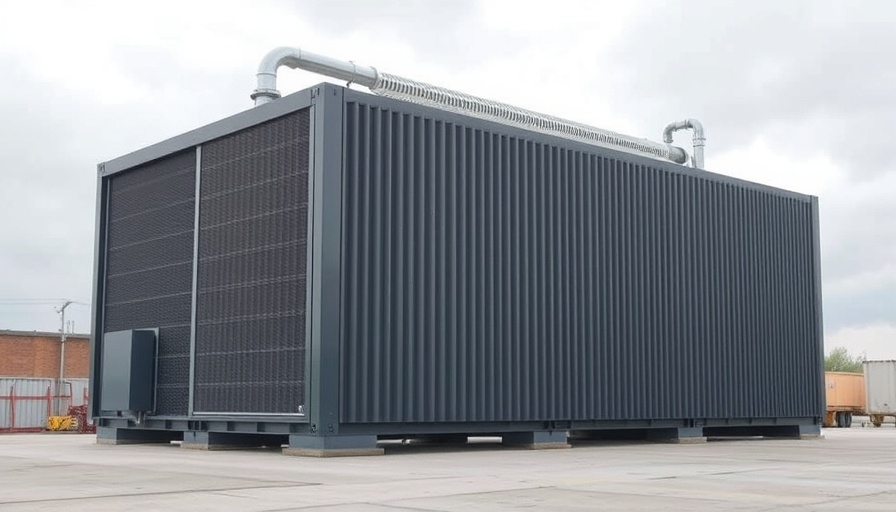
RepAir Carbon's Revolutionary Approach to Affordable Carbon Capture Machines
As the world grapples with climate change, the urgency for effective carbon capture solutions has never been more pronounced. In the past decade, direct air capture technology has evolved dramatically, yet the costs have remained a major barrier for broader adoption. Companies like Microsoft and others with deep pockets have stepped up to the plate, pledging to eliminate their emissions by 2030. However, for small businesses and startups, the highest price tags in carbon capture—around $600 per metric ton—remain prohibitively expensive. Enter RepAir Carbon, a promising startup that’s making waves with innovative machine designs inspired by battery technology.
How RepAir Carbon Stands Out in the Carbon Capture Arena
RepAir Carbon is pioneering a new, more efficient method of carbon removal that significantly reduces costs to potentially as low as $70 to $80 per metric ton. This breakthrough stems from the company's unique approach to harnessing electricity to execute the carbon capture process. Traditional technologies often rely on solvents needing to be heated to release CO2, resulting in downtime and inefficiency. In contrast, RepAir's process utilizes a mechanism akin to a fuel cell or battery, capturing carbon in a continuous manner that enhances performance.
The Technology Behind RepAir's Carbon Capture Method
At the heart of RepAir's carbon capture technology is an innovative design where two electrodes are separated by a membrane. When air or gas is drawn into the reaction chamber, it encounters a nickel-based electrode energized with an electric current. This sparks a chemical reaction that converts CO2 into carbonate and bicarbonate ions, which flow through the porous electrode to the positively charged electrode. Here, the ions revert to CO2, which can be stored, showcasing an operational efficiency that other technologies struggle to match.
Growth and Investment: A Bright Future for Carbon Removal
RepAir Carbon has recently secured a $15 million extension to its Series A funding round, led by Extantia Capital and Taranis Carbon Ventures, with contributions from Ormat Technologies, Repsol, and the Israeli Innovation Authority. This influx of capital positions the startup to enhance its technology and expand its reach to businesses involved in significant emissions, particularly in the energy sector. As RepAir explores partnerships with gas turbine developers and data center operators, the potential for growth in practical applications is vast, enabling companies to seamlessly integrate carbon capture into their operations.
Implications for Small Business Startup Ideas
The advancement of affordable carbon capture technology opens up new avenues for small business startup ideas focused on sustainability. Entrepreneurs could explore carbon credits, carbon capture installation services, or even develop new technologies that complement work done by companies like RepAir. Additionally, understanding government grants for business startups in green technology can empower new ventures looking to make an impact in the ever-evolving climate landscape.
Breaking Down the Cost of Startup Funding
For those considering how to start a business in this promising sector, it's essential to map out a clear business startup plan. The funding landscape presents numerous options including business startup loans, government grants, and partnerships with established companies. For startups focusing on carbon capture, that means being adept at navigating the complexities of funding options while ensuring a robust operational model that emphasizes both innovation and sustainability.
Challenges and Opportunities in the Carbon Capture Sector
While the carbon capture sector is rife with potential, it is not without challenges. The technology is still in its infancy, and scaling solutions to meet global demands is critical. Additionally, as new players enter the market, competition will heat up. Therefore, fostering a culture of continuous innovation and collaboration will be vital for startups looking to distinguish themselves. Keeping abreast of business startup trends, market shifts, and technological advancements will allow aspiring entrepreneurs to better position themselves within this field.
 Add Row
Add Row  Add
Add 



Write A Comment